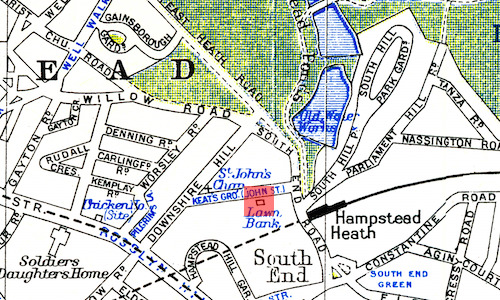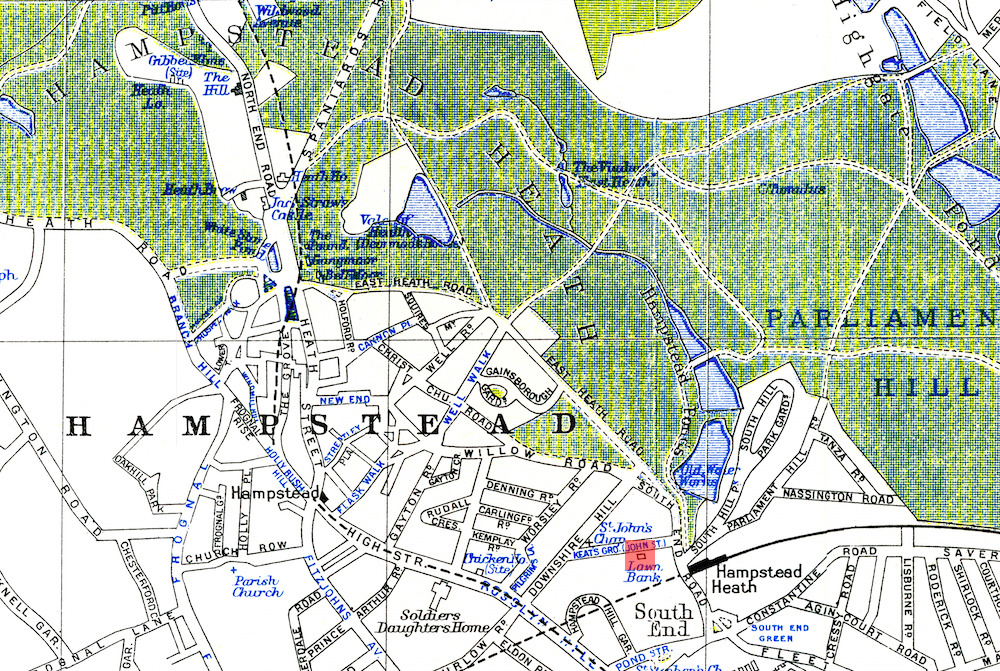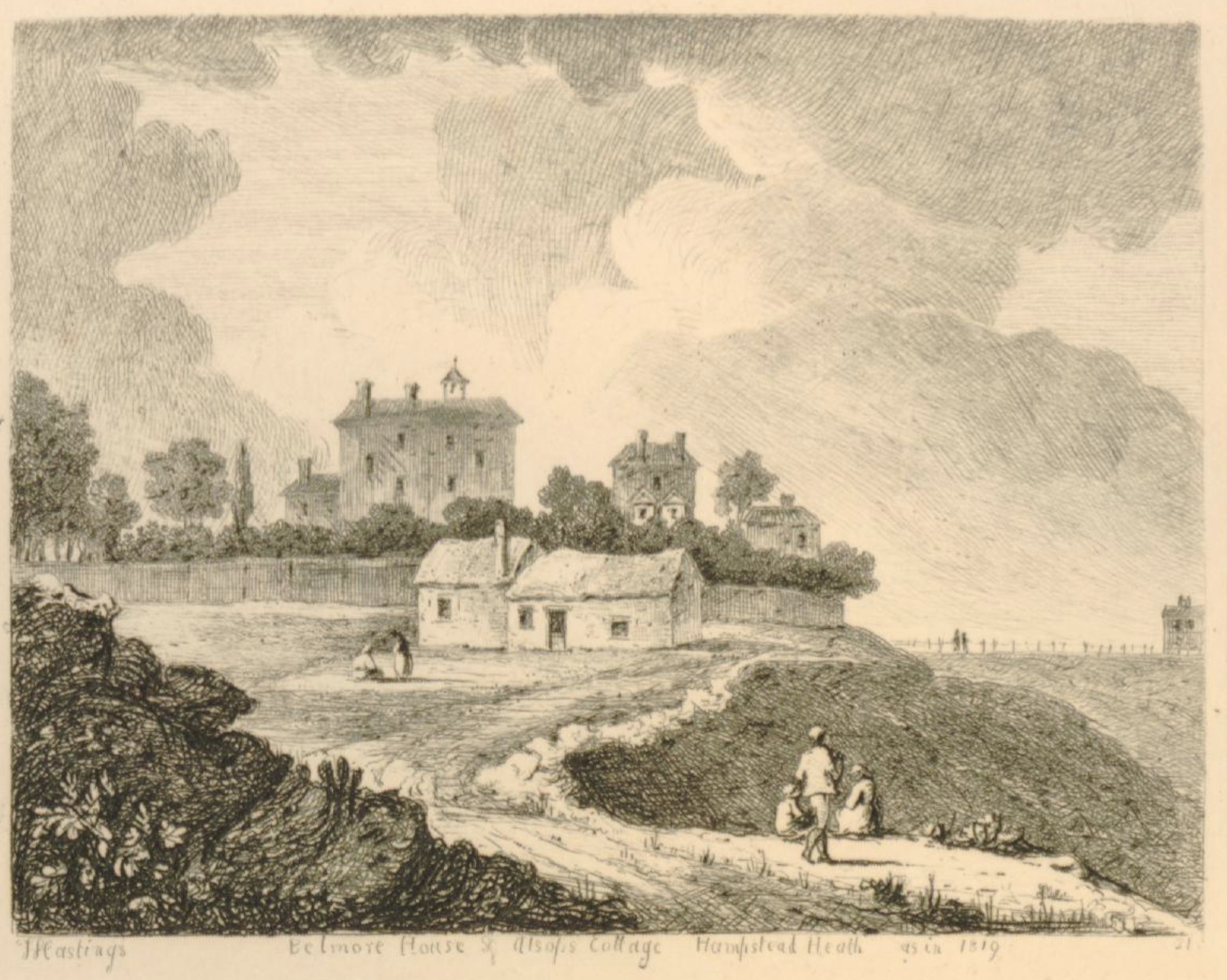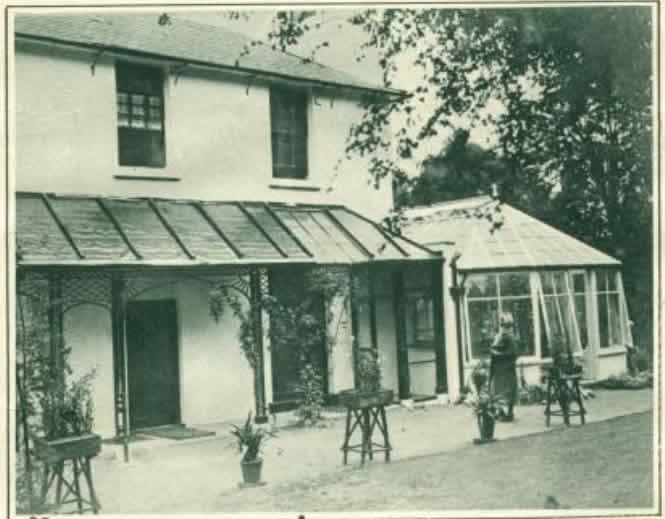9 June 1819: Abatement of Fame; or, Beg What You Can for Me; & No More Pet-Lambing Verse
Wentworth Place, Hampstead


In June 1819, Keats, aged twenty-three, finds himself in very serious financial difficulty:
his inherited family money, which he has been getting in unpredictable bits and pieces
from
the variable overseer of the family estate, Richard
Abbey, now seems to be in dispute—or so Abbey suggests (letter 17 June, to Haydon). For a few years now, Keats has been living
almost exclusively on credit based on his capital from this family legacy, but it
appears this
may be dwindling. That Keats needs to make a living forces him to entertain emigrating
to
South America or to become a ship’s surgeon, though he seems to give up on these ideas
by
early June. Keats also attempts to call in all loans that he has himself made. Keats
confesses
to his sister, Fanny, that he does not have enough
money to take a coach to see her (letters, 14 and 17 June); to his friend, the painter
Benjamin Robert Haydon, he writes, Do borrow or
beg some how what you can for me
(17 June). That he continues to experience a chronic
sore throat does not help his circumstances and ability to travel.
So after an extraordinarily poetically productive spring on which much of Keats’s
reputation
will come to rest (though Keats is oddly quiet about what he has done, or unaware
of what he
has just achieved), in early June Keats portrays himself as idle
and very adverse to
writing
because of the overpowering idea of our dead poets and from abatement of my
love of fame.
Giving that just a few years ago Keats used to fawn over the idea of
poetic fame in both his letters and his verse, this is a significant measure of his
poetic
growth. He believes his discipline is to come, and plenty of it too.
At the same time,
and once more putting his maturation into perspective, he also believes he is now
more of a
Philosopher than I was, consequently a little less of a versifying Pet-lamb
(letters,
9 June, to Sarah Jeffery). Importantly, this self-assessment of his progress clearly
points a
sense of depth and poetic maturity, especially relative to much of his earlier ineffectual
poetry—and his immature seduction by Huntian notions of fame: no more crowning each
other with
laurels. Writing his Ode on
Indolence is the thing I have most enjoyed this year,
though the comment
perhaps humorously plays off his reference to being idle.
(When Keats writes the ode is
uncertain, but it might have been written mid or late March, or even into June; it
is by no
means the best of his 1819 odes.)


But all of his plans, no matter how unsettled a state of mind
he has, come to the same
intentions: I cannot resolve to give up my favorite studies,
he writes to his sister,
Fanny, and so I propose to retire into the
Country and set my Mind a work once more
(letters, 9 June). In fact, Keats’s friend
James Rice, Jr., has asked Keats to spend a month
with him on the Isle of Wight, and although Rice is quite ill, Keats has few options.
Again,
in some ways, these comments and his intentions reflect a maturing of his values and
a
refocusing of his poetic ambitions, and given the accomplishment of the spring odes,
these
goals might be both higher yet also realistic. At the same time, there is desperation:
he very
much needs to find a way to make a living, and at the back of his thoughts lurks his
desire to
write a grand poem. Momentum for the long Hyperion poem has now
fizzled, though late into 1818 it kept him practicing his poetry and lifting his poetic
register to approximate Milton’s tone and style.
But something halts him; perhaps it is a sense that he in fact is not a Miltonic poet
whose
artistry is overly artful, for him at least; perhaps it is the poem’s somewhat cloudy
plot and
undetermined thematics that gives him pause.
Keats is now tired: of London; of borrowing from friends, and they from him; of making
the
social rounds; of his chronic sore throat often preventing physical activity; of begging
from
and dealing with Abbey. He is also perhaps tired
of waiting for success as poet, though clearly he remains quietly driven by his belief
in his
powers as a poet. To his sister, he repeats the idea that he can live more cheaply in the
country
(to Fanny Keats, 17 June). Indeed, by mid-June, Keats gets a small loan from his
closest friend, Charles Brown, who persuades Keats
not to return to a medical career but to try the press once more,
which Keats says he
will do with all my industry and ability.
His close friends remain convinced that Keats
should continue to write. For his part, Keats is unsettled.

But at least plans afoot to move to the Isle of Wight are now acted upon in late June, which Keats hopes will result in cheap accommodation. After going through a fierce storm while on the coach ride to Portsmouth (which soaks him, and cannot have done his uncertain health any good), 28 June 1819 finds Keats on the island in Shanklin. He hopes to begin some serious writing, including work on a revenue-generating play—a tragedy—to be written with Brown, who arrives about the third week of July. Keats also has hopes for a long poem, Lamia, which he likewise hopes will have some success; popularity (translation: money) is now more important that enduring fame.
Missing from all of this is what exactly is going on with Keats’s relationship with
: circumstances—uncertain
finances, uncertainty about her personality, uncertainty about his health, his friends’
doubts
about Fanny herself—prevent Keats from pressing forward with or without her. But we
have to
take it that Keats remains emotionally committed to Fanny. We have to keep in mind
that some
success with his writing also increases his chances for being with Fanny; as he writes
to
Haydon, he will make one more attempt in the press
—and he asks Haydon to borrow or
beg some how what you can for me
(17 June). Writing to his sister on 14 June, in the
context of not being able to afford taking a coach to see her, I do not happen just a
present to be flush of silver.
The pressure is on.

